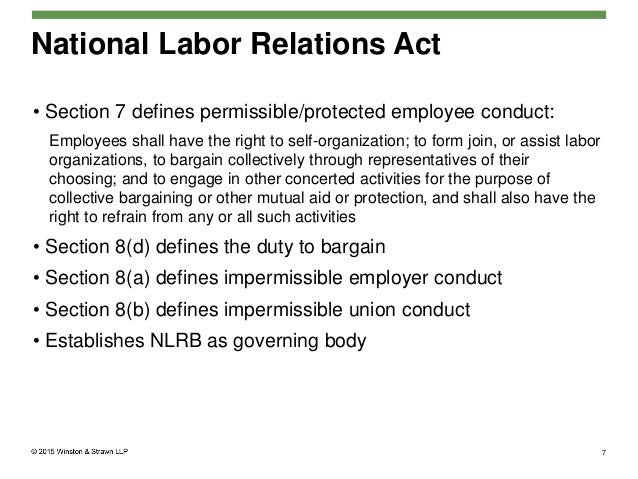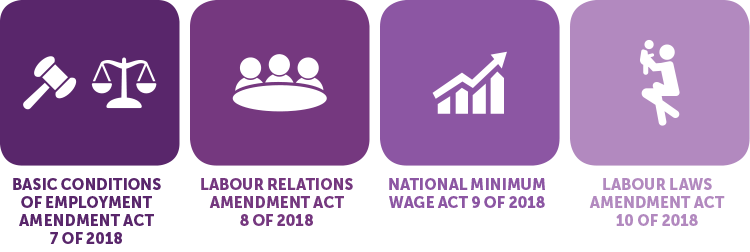Section 8 Of The National Labor Relations Act

A unfair labor practices by employer it shall be an unfair labor practice for an employer.
Section 8 of the national labor relations act. 2 to dominate or interfere with the formation or administration of any labor organization or contribute financial or other support to it. Section 8 a 1 of the act makes it an unfair labor practice for an employer to interfere with restrain or coerce employees in the exercise of the rights guaranteed in section 7 of the act. Provided that subject to rules and.
Section 8 of the national labor relations act legal beagle. The focus of the traditional law of unions which makes up the major part of the area of law known as labor law is on workers collectively and their rights as a group this may be distinguished from employment law which focuses more on issues relating to the rights of individual employees. National labor relations act section 8.
All workers union and nonunion have the right to act collectively according to the nlra. Section 8 d of the act sets forth what is encompassed within the duty to bargain collectively. Section 8 b 1 a of the act makes it unlawful for a labor organization or its agents to restrain or coerce employees in the exercise of the rights guaranteed them in section 7 of the act provided that this paragraph shall not impair the right of a labor organization to prescribe its own rules with respect to the acquisition or retention of membership therein.
For example you may not. 187 a it shall be unlawful for the purpose of this section only in an industry or activity affecting commerce for any labor organization to engage in any activity or conduct defined as an unfair labor practice in section 8 b 4 of the national labor relations act section 158 b 4 of this title. For example you may not.
The national labor relations act also referred to as the wagner act or simply as nlra protects workers rights regardless of whether they belong to a union. Section 8 b 3 of the act makes it unlawful for a labor organization or its agents to refuse to bargain collectively with an employer whose employees you represent. 1 to interfere with restrain or coerce employees in the exercise of the rights guaranteed in section 7 section 157 of this title.













/employee-rights-c979f0f79b1343e7ad58442bd7e17c60.jpg)



